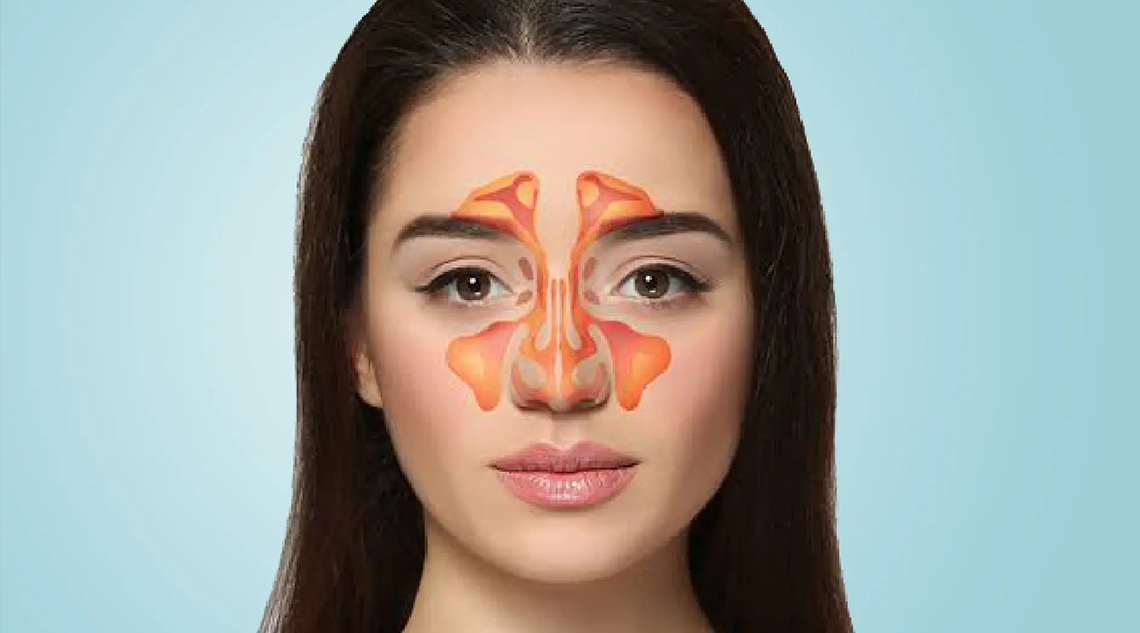Allergic sinusitis, common in early childhood, is a reaction to exposure to inhalants such as dust, pollen, smoke and animal dander. A family history or allergic sinusitis may predispose certain individuals to be sensitive to certain foods and indoor and outdoor allergens.
Although people are not born with allergies, they develop symptoms when they are repeatedly exposed to the allergen. Sinusitis can be acute, lasting less then four weeks or chronic, lasting longer than eight weeks.

Symptoms
Allergic sinusitis is sometimes confused with nonallergic sinusitis because the symptoms are similar. A key difference is nonallergic sinusitis doesn't usually cause an itchy nose, eyes or throat. Allergic sinusitis symptoms generally vary with the season and may include:
- Nasal congestion (sneezing, runny nose) and post nasal drip that persists for more then two weeks
- Itchy eyes, nose and throat.
- Headache, pain, tenderness, swelling and pressure around the forehead, cheeks, nose and between eyes.
- Behavioral changes including irritability, inability to focus, fatigue.
- Sleep problems such as insomnia, bed-wetting, or sleepwalking.
- Reduced sense of smell and taste.
Diagnosis
A physician can diagnose sinusitis by:
- Taking a detailed medical history and performing a physical examination
- Allergy skin tests may identify the allergen causing nasal flare-up.
- Nasal endoscopy - A flexible tube is inserted into the nasal passages and fiber optic light allows the doctor to see the smallest of abnormalities in the sinuses.
- Computed tomography (CT) scan - A CT of the sinus can help your physician to assess any injury, infection, or other abnormalities.
Treatment
For mild seasonal allergies and allergies to pet dander, avoidance is the most effective course of action. Unfortunately, not all allergens can be avoided and year round exposure to certain triggers may be unavoidable.
Some self-help and pharmaceutical remedies are:
- Saline nasal sprays rinse your nasal passages and may provide some relief.
- Inhaling steam may reduce nasal congestion.
- Decongestants (over-the-counter products are available) may provide some relief.
- Corticosteroid nasal sprays may reduce inflammation.
- Desensitization through allergy shots (exposure to the allergen) may benefit children with pollen sensitive allergies.
- Over-the-counter pain relievers can provide relief (Caution: do not give acetylsalicylic acid (i.e. Aspirin) to children).
- For severe bacterial infections, antibiotics may be required

